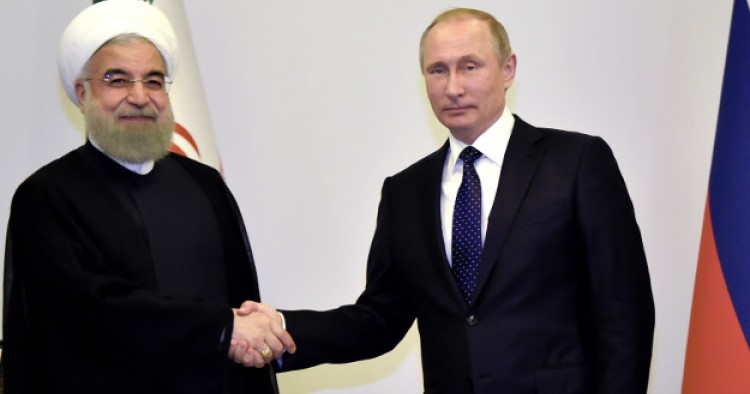Although Russia, Iran and Turkey agreed on Tuesday to jointly monitor the fragile cessation of hostilities in Syria, tensions are escalating between Moscow and Tehran about how to move forward with both war and diplomatic efforts in the future. It is becoming more apparent that Russian and Iran have diverging interests and goals – both in the immediate and long terms – in Syria, although they have cooperated closely over the past years to prop up the embattled regime of Bashar al-Assad. Many in Tehran fear that the Russia-sponsored Syria dialogue could undermine Tehran’s role in shaping Syria’s future.
After the conclusion of the Astana talks, for example, Tabnak News, an outlet run by former head of Islamic Revolution Guards Corps (IRGC) Mohsen Rezaei, cautioned that the “Russia peace” is based on “Russia’s policies and needs” and could harm the interests of Damascus and Tehran. “Now the Russians are seeking to consolidate the ceasefire… and take the next steps to bring peace to Syria. As a result, the options of putting pressure on Iran and the Syrian government to agree to a ceasefire in the Wadi Barada– which is under terrorists’ control – and giving concessions to Turkey regarding defeating the Kurds, are all on the table for Russia,” it warned.
With the fall of Aleppo, Russia is apparently trying to find a political settlement and reduce its military involvement in the Syrian war. Iranian officials, however, are urging the Assad regime and its sectarian militia forces to keep fighting. “Syria’s enemies must not be allowed to tactically exploit the opportunity of ceasefire and political talks to reinforce, rearm and fund terrorist groups and rebuild their operational capabilities,” Ali Shamkhani, a top aide to Iran’s Supreme Leader Ali Khamenei, told visiting Syrian Prime Minister Imad Khamis in Tehran.
Iran controls all powerful militia groups fighting in Syria and can undermine any Russia-led or UN-sponsored peace efforts. Recently, the Syrian Army and Iran-backed militia forces have repeatedly violated Russia-sponsored ceasefire across Syria.
The Middle East Institute (MEI) is an independent, non-partisan, non-for-profit, educational organization. It does not engage in advocacy and its scholars’ opinions are their own. MEI welcomes financial donations, but retains sole editorial control over its work and its publications reflect only the authors’ views. For a listing of MEI donors, please click here.













